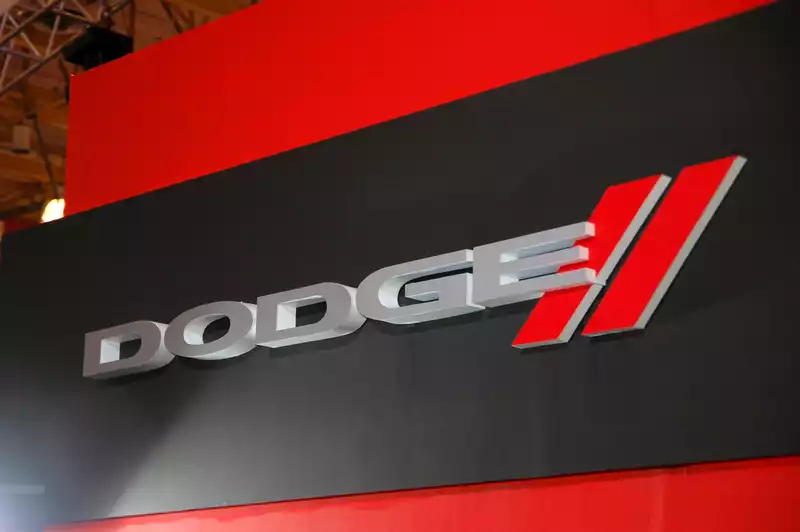As internal combustion engines are becoming obsolete, automakers are slowly beginning to develop plans to stay in business after electrification. The latest is Dodge, the all-American muscle car brand.
Yes, that's right, Dodge. Dodge is one of the last companies expected to replace its super-powerful V8 engine with an electric motor. This may explain the truly bizarre approach the company has taken to justify the gas-to-battery swap.
For most automakers, the switch to electric vehicles is little more than an announcement of what timeline they have set for phasing out gas. For established electric vehicle brands, it may be a commitment to phase out ICEs altogether by a certain year. And for a brand new to the market, it could be as simple as announcing one or two electric vehicles.
Dodge is firmly in the latter camp, announcing that its first electric car will be available in 2024. Oddly enough, however, the company has made the ridiculous claim that it will not sell electric cars. Instead, it will sell the "American eMuscle."
This is a fancy term for an electric car. Because these cars are undoubtedly the four-wheeled, high-performance vehicles that Dodge is known for, only with batteries instead of gasoline tanks. So this claim makes as much sense as claiming that the sky is blue.
Unfortunately, the announcement contains many reasons to justify the switch. While most companies announce their electrification plans and that's it, Dodge's approach makes it sound as if the automaker considers "electric car" a dirty word and ditching gas a shameful thing to do.
It's as if the past 15 years never happened, and Dodge still thinks of electric cars as gimmicky little cars that can't go very far and take too long to charge. But that is far from the truth.
Electric cars have taken off in the past few years, and some spectacular vehicles have been introduced recently. Whether it's the ultra-fast acceleration of the Tesla Model S Plaid, the tremendous 620-mile range of the new Tesla Roadster, or the GMC Hummer EV that accelerates the 9,000-pound behemoth from 0-60 in just three seconds.
There are even electric hypercars like the Rimac Nevella, which has a top speed of 258 mph. In other words, electric power does not mean sacrificing speed or performance, which are important aspects expected from a company like Dodge.
And the company cites several excellent points to justify the change. Tim Kuniskis, CEO of the Dodge brand, spends a lot of time on it in the company's announcement video (above).
Kniskis argues that electrification is actually the best thing for the Dodge of the future, not so much because of the fact that it is the global trend, but because of what it can offer.
"If the charger makes the Charger faster, then that's where we come in," Kniskis said. This may sound nuanced, but it is not. Because our customers are buying an experience, not a technology."
It's hard to argue with that logic, since Dodge has been around for over 100 years. Customers know what they want and what they expect, and just because Dodge changed the power system of its cars does not change the situation in one fell swoop. But no one expects that.
It is worth noting that the Hummer EV, the first model of which will be introduced at the end of next year, will be almost identical to the gasoline-powered Hummer. And the Ford F-150 Lightning, the electric version of the record-selling car in the U.S., is almost indistinguishable to the naive observer from the gasoline and hybrid cars already on sale.
This is because the people who buy those cars (or trucks) know what they want, and offering something different will only alienate them. So it is in the company's best interest to retain its loyal customers, even if electrification is planned.
When you think of a typical Dodge owner, you may think of a wild, wild wannabe who doesn't care about the impact their car has on the environment. They want to go fast, burn rubber, and make a loud noise in the process.
Unfortunately, one gets the sense that Dodge is anticipating a backlash from these kinds of people. And that seems clear from the way Dodge justifies the switch.
Kniskis is not shy about emphasizing the benefits that electrification brings, saying, "[Dodge engineers] know that electric motors give us more. If we know a technology gives our customers an advantage, we have an obligation to adopt it. Whatever it takes to stay in the lead."
However, I get the feeling that this company is second-guessing itself and is not sure of the decisions it has made. Therefore, to compensate, they over-explain the advantages of electric motors. The announcement trailer even says, "Why on God's green earth would Dodge build an electric car?"
EVs have those advantages in terms of performance. Sure, EVs produce no pollution and are fairly quiet. But they also provide instant torque, thanks to a speedier connection between the motor and the accelerator. Since everything is electric impulse and no fuel is burned, the car moves instantly when you step on the foot.
This is a huge advantage if you want to go fast and don't want to wait for it. Even if it is to get through a tedious stoplight faster than the car next to you.
But with this approach, it feels like Dodge is just pandering to the outdated attitude that electric cars are not worth having. It's not 2010 anymore, and the transportation value of electric vehicles has been proven thousands of times over. Sticking with the term "electric car," for whatever reason, doesn't actually benefit anyone.
Certainly, I don't feel that swapping the word around to make it seem more macho and powerful is going to create believers out of the EV skeptics out there.
.









Comments